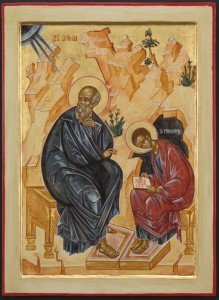John’s language about “the Jews” is even more condemnatory that Matthew’s. Consistently, Jesus’ opponents are called “the Jews.” They are “from below,” from “this world”. They are children of the devil: You are from your father the devil, and you choose to do your father’s desires. He was a murdered from the beginning… a liar and the father of lies.”
Such language is dangerous, especially when separated from its first-century historical context. The author of John was Jewish, and most or perhaps all of the people for whom he wrote were originally Jewish. He knew that Jesus and his disciples were all Jewish. The reason for his harsh language was because his community of Christian Jews, like Matthew’s, was experiencing rejection by non-Christian Jews. The rejection is reflected in the story of Jesus healing a bland man in John 9, especially verses 22:34-35.
 Scholars correctly point out that the term “the Jews” in John should be translated “the Jewish authorities” or simply “the authorities.” Despite his language, John is not indicting all Jews, but those responsible for Jesus’ rejection and for his own community’s rejection. To fail to clearly recognize the historical circumstances and the limited intention of these passages is to perpetuate the long history of Christian anti-Semitism. What do Christians, who take the Bible literally and absolutely, do with passages that say that Jews are children of the devil? But recognizing John’s late first-century historical context enables us to understand why he said what he said even as it delegitimates continuing to say what he said.
Scholars correctly point out that the term “the Jews” in John should be translated “the Jewish authorities” or simply “the authorities.” Despite his language, John is not indicting all Jews, but those responsible for Jesus’ rejection and for his own community’s rejection. To fail to clearly recognize the historical circumstances and the limited intention of these passages is to perpetuate the long history of Christian anti-Semitism. What do Christians, who take the Bible literally and absolutely, do with passages that say that Jews are children of the devil? But recognizing John’s late first-century historical context enables us to understand why he said what he said even as it delegitimates continuing to say what he said.
Thus John, like Matthew, comes from a time when conflict between non-Christian Jews and Christian Jews was intensifying. What historians often call the parting of the ways” between Judaism and what was becoming early Christianity was well under way.
John does not preserve as much of the memory of the pre-Easter Jesus as the synoptics do. But its use of archetypal imagery to testify to the significance of Jesus is magnificent and powerful. For millions of Christians ever since, Jesus has been “the Word” become flesh, the Light of the World, the Bread of Life, the Way, the Truth, and the Life. Much of John’s language speaks to the deepest of human yearnings. In the gospel’s final scene, the post-Easter Jesus speaks words that are also central to the synoptics: “FOLLOW ME”. Are you ready to follow Jesus?
